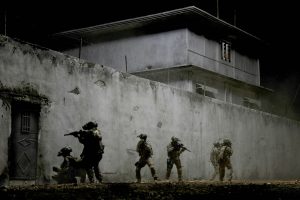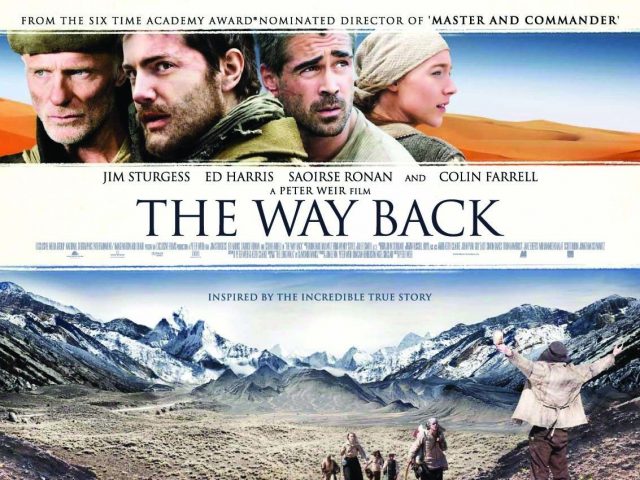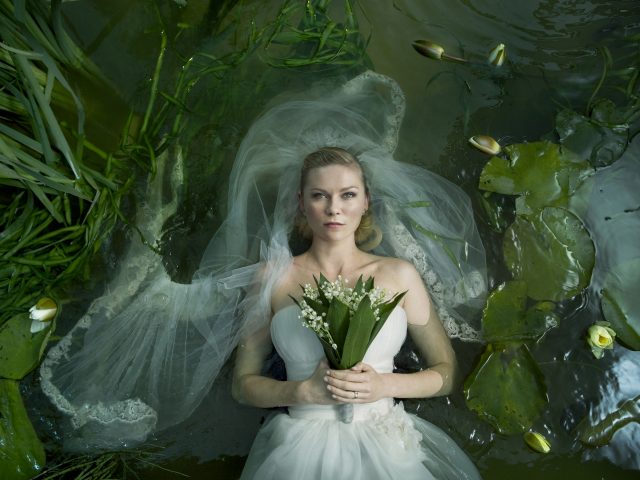We need to talk
Like Hurt Locker, Kathryn Bigelow’s 2008 Oscar winning film, Zero Dark Thirty is a compelling war film, appropriately gritty and compelling. It tells the story of the raid by the U. S. Navy SEAL team in 2011 in which Osama bin Laden was killed and the ten-year search by the intelligence community that led up to it.
I am aware of the controversy surrounding Zero Dark Thirty. It’s been so public that I have trouble believing anyone who is half-alert to the news wouldn’t have heard about it. One voice expressing dislike of aspects of the film is that of Glenn Carle, a former CIA agent involved in interrogating terror suspects. In an online post, “Zero Dark Thirty—Torture Is the American Way?” Carle issues a strong warning to his fellow citizens:
Zero Dark Thirty, Hollywood’s version of how we killed Osama bin Laden essentially says that torture works. Torture is disturbing, but tough, and American heroes do it.
Do not be misled. Pay attention: The men and women who hunted, found, and killed Osama bin Laden—and heroes they are—did not need to use torture. Torture is un-American. It is evil. We found bin Laden using painstaking intelligence work, not waterboards.
The shocking opening scenes and the underlying premise of Zero Dark Thirty, the latest fillip of the torture hagiography to afflict and pervert American society insidiously propagates the view that torture is necessary; tough men and women must make tough decisions, right? It becomes clear how deeply America’s moral frames of reference have deteriorated when we realize that it was Kathryn Bigelow, a Hollywood director and power, and not a known shill for the Neoconservatives, whose film presents torture as having been instrumental in finding Osama bin Laden, and that “enhanced interrogation” is Americans doing what Americans must do to protect home and hearth.
“In an otherwise laudable film,” Carle concludes, “Zero Dark Thirty’s opening scenes corrode our culture, just as ‘enhanced interrogation’ has.”
I don’t wish to nitpick here, but I think a distinction is important. The torture permitted under the Bush administration did indeed corrode American society, our nation’s reputation, and our ethics as a people. I think the opening scenes of Zero Dark Thirty are an example of one of the essential roles that art plays in a fallen world: to make us think. My fear is less that the film will corrode our society than that we will fail to think. Even if you don’t like war movies, please see Zero Dark Thirty. If you are troubled by it, don’t be alarmed: it is a troubling film, and is designed to be. You should be alarmed if you are not troubled by it.
My opposition to what was euphemistically termed “enhanced interrogation” is not because they repulse me, though the opening scenes of the movie were very hard to watch. I am opposed because my Christian convictions, informed by just war ethics, concludes they are evil, unjust, and dehumanizing. From a biblical perspective, even terrorists intent on attacking us are persons made in God’s image and deserve to be treated as such. America has never lived up to its ideals, but its ideals are better than this. “For a time,” Jill Lepore, Harvard historian writes, “Americans interrogating suspected terrorists were not answerable to any rules, except those made, ad hoc, by the Bush Administration. The White House’s answer to terrorism, which is an abandonment of the law of war, was the abandonment of the rule of law.”
Thankfully, when Barack Obama became President he put an end to this evil practice and closed the door on this sad episode in American history. I am not convinced, however, that as a people we have thought about this issue or discussed it sufficiently. That our leaders could so easily sacrifice our deepest ideals in the name of security is troubling. In fact, just war principles had been raised in the last few decades as justification for conflicts in which American soldiers would be participating. Why did such ethical considerations not enter the picture here? The rule of law in war is vital because without it a nation can win a conflict only to discover that in the process they have sacrificed their souls.
Terrorism remains a sad fact in our broken world, the yearning for security still lingers amidst the fears generated by the daily news, and decisions need to be made about fresh threats as time goes by. We need to talk.
Now, under a Democratic Administration an equally troubling specter has become a regular practice in the name of America, but again, with insufficient discussion as a people. It too is in the news, but has yet to appear in a film troubling enough to get a thoughtful conversation off the ground. I refer to the use of drones. I understand their appeal: besides their obvious cost effectiveness, drones provide the ability to use smart weapons to target individuals and groups without endangering the lives and safety of American troops. Perhaps they have a place in the pursuance of a just war. As a Christian, however, I remain dissatisfied with and concerned for the status quo, described by Dr. Lepore: “…the New York Times has reported that the Obama Administration holds ‘Terror Tuesdays,’ meetings in which the President and his national-security advisers discuss which suspected terrorists, remaining at large, should be assassinated by drones. In about a third of these cases, the President alone takes responsibility for naming the targets, which have included American citizens.”
This is insufficient, badly insufficient. Just war ethics requires a far clearer reliance on legal accountability and the rule of law. Again, we need to talk.
Both topics, the use of torture and the use of unmanned drones, are difficult to face and more difficult to discuss with civility. Still, this is a national conversation that is badly needed and that needs Christians as participants. For one thing, civility is not an option for us since the command to love even our enemies requires it. Hopefully that will help. And because our faith reveals a worldview that under Christ’s Lordship addresses every aspect of life and reality, we can join the discussion with something substantial to contribute. That may require some thinking and research of our own, but that’s simply a part of faithfulness. As Christians we care about security because we believe in justice but we don’t idolize it because we know perfection is not possible in this insecure world and that we are called to give our lives for our neighbors. That means we can contribute to the national discussion without defaulting into any political ideology. And in our highly politicized society that is a grace.
Sadly, Christians are often contributors to both the lack of civility and the polarization in the public square. May we repent of our lack of love (which is what civility is) and idolatry (which is what a commitment to political ideology is), and return to the first principles of God’s kingdom. Then we will be ready to enter the conversation.
We need to talk. May the conversation occur, and may Christians who seek to think and live Christianly be part of the conversation.
Sources:
Glenn Carle online (http://www.huffingtonpost.com/glenn-l-carle/zero-dark-thirty-torture_b_2395939.html).
Lepore in “The Dark Ages: Terrorism, counterterrorism, and the law of torment” in The New Yorker (March 18, 2013,p.30, 32).






Denis, Thank you so much for this! I've linked to it on my (irregular) blog, where I had posted on this same subject a month ago or so…
http://www.manofthewest.net/blog/2013/03/wise-words-on-morality-law-and-terrorism-from-denis.html
A theological thought: I find it very strange and disturbing that so many "Christian Conservatives" seem to dismiss concerns about such things by saying "but the terorist threat is real!", which is essentially a "ends justifies the means" argument. And particularly strange that so many of these come from church/theological backgrounds that emphasize the power and sovereignty of God- and yet they don't seem to realise the theological disconnect of arguing that we "must" do something morally dubious while affirming the sovereignty of God.
Ian:
Thanks for commenting. I'm glad to learn there are others who have similar concerns.
Your observation about Christian Conservatives parallels my experience. I have no research to call upon here, but suspect the disconnect may be related to the nature of their political commitment. Since Conservatism is a political ideology, that makes it, in biblical terms, an idolatry, a religious faith commitment that from that moment vies for primacy in their life and thinking. All you are observing then is evidence of what worldview has actually captured their heart. So, though I don't find the phenomenon strange (in that it makes sense to me) like you I find it very deeply disturbing.
One more topic that we need to talk about.
Thanks
Denis
Hmmm…
I don't disagree that for many Christians (on both sides of the aisle) their political commitment has become an idol. As someone who is happy to call themselves a conservative (note the small 'c' though, and I tend to qualify it more if asked!), though, what i find particularly strange is that entrusting the government with arbitrary power is the very antithesis of true conservatism.
There seems to be an bizarre mental split where the same people who spend time accusing the current administration of plotting to strip Americans of their rights and destroy the rule of law are equally critical of them for following the law in fighting terrorism, or support them when they don't. Equally – tho' not quite as often – you can find political liberals who fight for equality all day, but support drone strikes…
To be honest, I'm inclined to think its simpler idolatries and blindnesses than Political Ideologies. I think that ever since 9/11 our politicians have been (falsely) promising us security if we'll just stop being so concerned about the Rule of Law. And I think that for a great many people, regardless of their political ideology, their ultimate idol is "Personal Peace and Affluence" (to use Schaeffer's phrase). The fault is fear, selfishness and short-sightedness in us, and in our politicians. Because for all they talk about Liberty or Justice, none of them are willing to admit to us that Liberty and Justice have a price, that a point may be reached where security and freedom are incompatible.
And on the social level, I think this is compounded by a specific blindness and prejudice on the issue of terrorism, in that I think that part of the reason so many are willing to dismiss the rights of terrorism suspects to a fair trial (or any trial!) or other due process is that they never, ever, imagine that they or anyone they know will be accused of terrorism. Terrorists are strange people "out there", who don't look like us and probably have Arabic names…
One of these days I'm going to write a little piece that starts
"First they came for the Islamic Fundamentalists and the "supporters of Terror groups"
And I cheered, because these people threaten our civilization!
Then they came for the militia groups and the survivalists,
and I did not speak up, because those guys are weird and scary and probably dangerous"
… and so on…
If the rule of law doesn't apply to everyone, it applies to no one.
Ian
PS. Denis, would it be ok if I copied your comment and my response over to my blog?
Ian:
My comment on ideology is based on David Koyzis' excellent book, Political Visions & Illusions, which I recommend. Though I do agree that lots of other factors are likely in play, everything from fear to bigotry.
And yes, copy whatever you'd like.
Thanks
Denis
Denis, I also thank you for your very reasoned words and insight. I served in the Air Force for 30 years. I had a support type job so I was not in direct combat. I have a number of friends who were in combat in the AF and other branches of the military. As a Christian, I have and still do pray for wisdom for civilian and military leaders. But I must admit that I have struggled with feeling compassion toward terrorists and the various aberrant Islamic groups in the Middle East. Having said that, I do recognize that this is my own sin. You are quite right, all people, ALL, are created in the image of a Holy God. That alone means they deserve dignity. I'm afraid that many Americans may view events like the killing of Osama Bin Laden in a much too simple, jingoistic way (America good, terrorists bad). So I applaud you for your willingness to bring civility and insight into something that is very complicated and not thought about enough. I apologize for my lack of clarity. I think your comments concerning the use of drones are equally valid. For not having served in the military, you bring much needed discernment and wisdom to a topic that many civilians don't think and talk enough about. Thanks and God bless you and Margie. Dave W.
Hi Mr. Denis,
"We need to talk" when you see the phrase, I wanted to talk about.
I am writing from Turkey. (North zone, Unye district)
I agree with your blog views.
Today's local daily newspapers from Ünye, I'm talking about you.
Selaam, the other end of the world, from Unye…
Valrici:
Indeed these topics are worldwide in their significance and will continue to be. And I am glad there are thoughtful people willing to discuss them in many different places. May you be blessed today. And thank you for commenting.
Denis